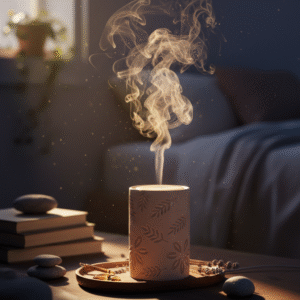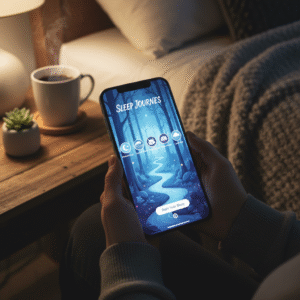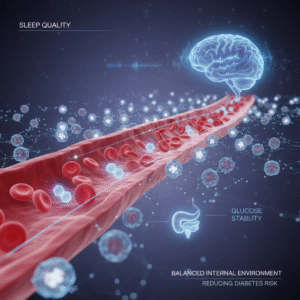Work-related factors like conflict and high demands can severely impact sleep quality. Learn the key drivers of work stress-induced insomnia and how to reclaim restful nights
The Link Between Work Stress and Insomnia
Caffeine and sleep: If your job follows you home in your thoughts and keeps you awake at night, you’re far from alone. New research shows that specific stressors at work can cause real damage to your sleep health. This goes beyond occasional sleepless nights—these stressors contribute to chronic sleep disruption and long-term exhaustion.
Understanding how work dynamics influence sleep quality is essential to improving both your health and professional life.
What Workplace Factors Wreck Your Sleep?
In a large-scale study involving thousands of working adults, researchers identified four job-related stressors most associated with insomnia:
- Workplace Conflict: Disagreements, tension, or hostile environments increase emotional strain.
- Lack of Control: When you can’t influence your job schedule or workload, it impacts sleep.
- Excessive Demands: Too many tasks, tight deadlines, and never-ending to-do lists elevate stress levels.
- Lack of Managerial Support: Feeling isolated or unheard at work amplifies anxiety and disrupts rest.
These conditions activate stress responses that interfere with natural sleep cycles, making it harder to fall and stay asleep.
How Job Stress Affects You Physically at Night
Stress from work doesn’t end when you leave the office. When you’re under constant pressure, your body releases cortisol and other “fight-or-flight” hormones that keep your brain alert.
This leads to:
- Racing thoughts
- Increased heart rate
- Restlessness in bed
- Difficulty reaching deep sleep
Even if you spend 8 hours in bed, your sleep quality is compromised. Over time, this contributes to fatigue, poor focus, irritability, and even weakened immunity.
Long-Term Effects of Work-Stress Insomnia
One of the most concerning findings is that poor sleep caused by work stress can persist long after the original job situation has changed. Your sleep architecture—your body’s natural rhythm and cycle—can become disrupted, reinforcing the cycle of insomnia.
Without intervention, sleep problems can become habitual, making recovery harder. This not only harms personal well-being but can also impair job performance and satisfaction.
How to Break the Cycle: Solutions for Better Sleep
Here are simple, evidence-based steps to protect your sleep from job-related stress:
1. Set Work Boundaries: Avoid checking emails or messages after work hours. Create clear time-off policies for yourself.
2. Practice Relaxation: Use deep breathing, progressive muscle relaxation, or meditation to wind down before bed.
3. Sleep-Friendly Bedroom: Keep your room dark, quiet, and cool. Remove electronics and bright lights.
4. Consistent Schedule: Wake up and go to bed at the same time every day—even on weekends.
5. Address the Root Cause: Speak to HR or your supervisor about overwhelming demands or lack of support. If needed, seek counseling or therapy.
Conclusion
Work-related stress is a powerful force that can undermine your sleep and overall health. Recognizing the specific job factors—conflict, control, demands, and support—can help you take steps toward healthier sleep.
Combine workplace advocacy with personal sleep hygiene habits for best results. Your well-being, performance, and quality of life depend on it.
Frequently Asked Questions
What work factors are most damaging to sleep?
Workplace conflict, lack of control, excessive workload, and insufficient managerial support are most commonly linked to insomnia.
Can work stress cause long-term sleep problems?
Yes. Chronic job stress can alter your body’s sleep rhythms and cause ongoing insomnia even after changing jobs.








